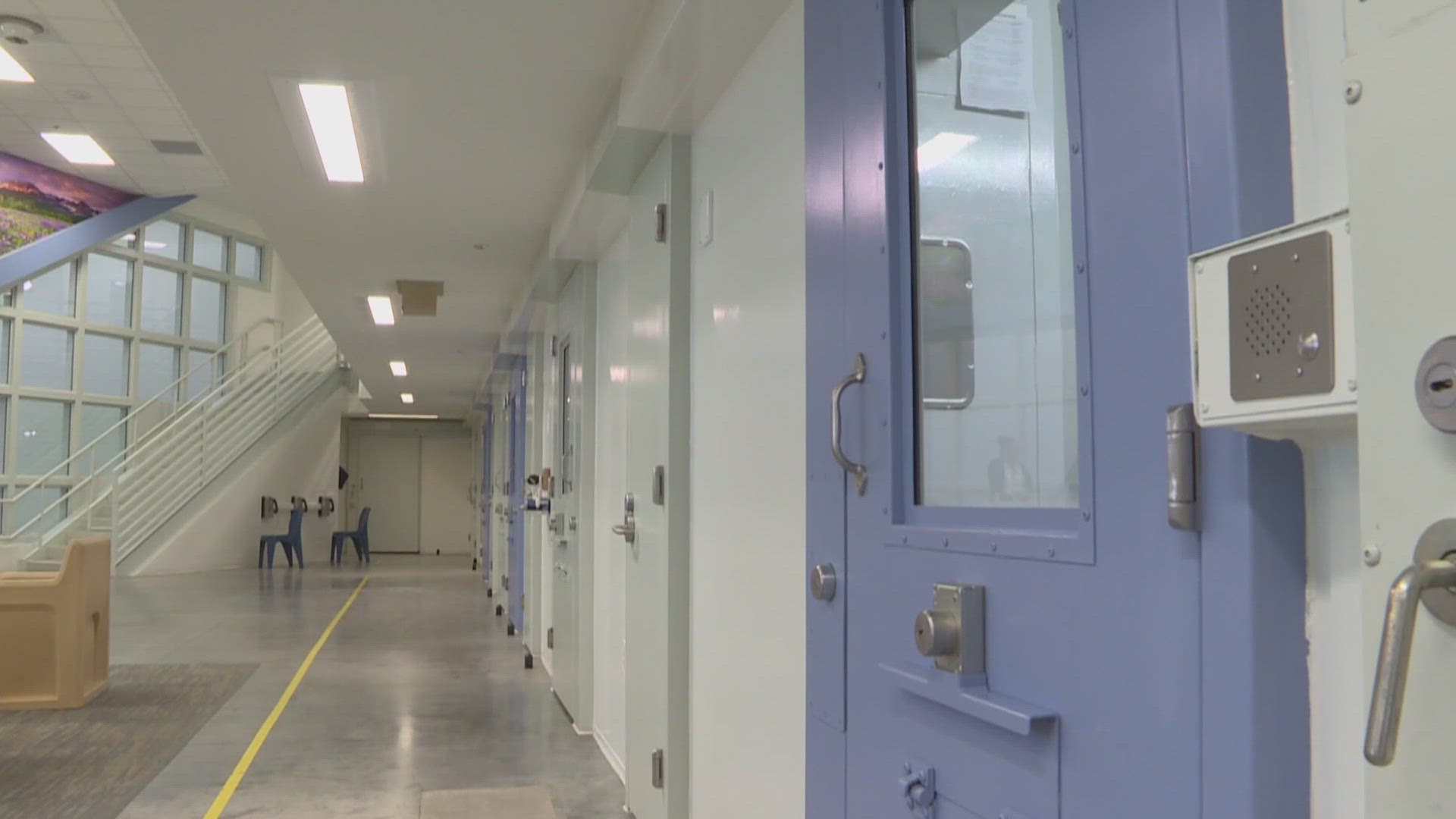DENVER — For the first time since the pandemic, Colorado is seeing dramatic improvements to its waitlist for people accused of crimes who need mental health treatment. These defendants have been deemed too ill to stand trial, and their cases are on hold until they've been restored to competency.
Despite improvements, hundreds of people are waiting in jail cells for longer than they should.
Around 445 people were on a waitlist for restoration treatment a year ago. Today, there are fewer than 250 people on the waitlist.
The waitlist for treatment is the lowest it's been in years since the pandemic.
"We were able to offer incentives to our nurses to work for us," Leora Joseph, director of Colorado's Office of Behavioral Health, said. "We opened 44 new beds, forensic beds, at the Fort Logan State Hospital which had never had forensic patients. We have been contracting throughout the state with private hospitals."
Because of the backlog, they entered into an agreement in federal court in 2019 to meet certain deadlines. When the consent decree took effect in 2019, the Colorado Department of Human Services saw meaningful progress. The waitlist and the time detainees spent waiting decreased throughout the first year. By June 2020, the number on the waitlist dropped below 100.
Then the pandemic hit, and all the numbers moved in the wrong direction.
The Department of Human Services faced staffing challenges, which left hospital beds unused. There became less capacity to serve people in the jail awaiting transfer and treatment.
In late May of 2023, the waitlist peaked at 464 detainees and remained similar through last summer.
A federal report filed in late May 2024 said most hospital units have reopened, and DHS has secured new beds which has allowed it to move more people off the waitlist. For the first time since 2021, there were fewer than 300 people on the waitlist.
Under the consent decree, Colorado is required to get people into restoration treatment within seven to 28 days. As of April 2024, the wait times were between about 55 to 106 days. The federal report said these wait times are the shortest since 2022. The state is also seeing some detainees admitted for treatment in a matter of days to weeks, rather than in weeks to months.
"We are doing what we can, so I think we continue to feel like more needs to be done," said Meghan Baker with Disability Law Colorado, the organization that sued the state in 2011 over the wait times and won.
Baker said she's staying cautiously optimistic about the improvements to the waitlist.
"I think we have finally gotten enough momentum to start impacting some of the systemic changes that are required," she said.
The criminal justice system stops when someone is found incompetent. Fewer people on the waitlist means fewer delays to cases.

